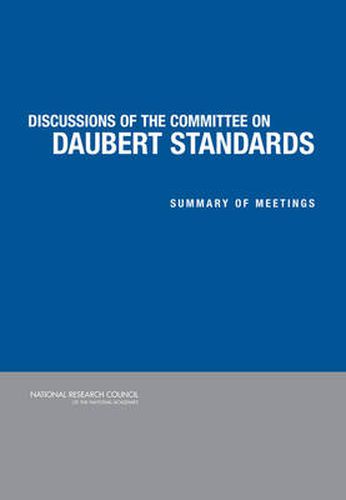Readings Newsletter
Become a Readings Member to make your shopping experience even easier.
Sign in or sign up for free!
You’re not far away from qualifying for FREE standard shipping within Australia
You’ve qualified for FREE standard shipping within Australia
The cart is loading…






In 1993, the U.S. Supreme Court in Daubert v. Merrell Dow Pharmaceuticals, Inc., laid out a new test for federal trial judges to use when determining the admissibility of expert testimony. In Daubert, the Court ruled that judges should act as gatekeepers, assessing the reliability of the scientific methodology and reasoning that supports expert testimony. The resulting judicial screening of expert testimony has been particularly consequential. While the Supreme Court sought to bring better science into the courtroom, questions remain about whether the lower courts’ application of Daubert accords with scientific practices. This report summarizes discussions held by an ad hoc committee of the The National Academies to consider the impact of Daubert and subsequent Supreme Court opinions and to identify questions for future study.
$9.00 standard shipping within Australia
FREE standard shipping within Australia for orders over $100.00
Express & International shipping calculated at checkout
In 1993, the U.S. Supreme Court in Daubert v. Merrell Dow Pharmaceuticals, Inc., laid out a new test for federal trial judges to use when determining the admissibility of expert testimony. In Daubert, the Court ruled that judges should act as gatekeepers, assessing the reliability of the scientific methodology and reasoning that supports expert testimony. The resulting judicial screening of expert testimony has been particularly consequential. While the Supreme Court sought to bring better science into the courtroom, questions remain about whether the lower courts’ application of Daubert accords with scientific practices. This report summarizes discussions held by an ad hoc committee of the The National Academies to consider the impact of Daubert and subsequent Supreme Court opinions and to identify questions for future study.